
THE FARM
Farming is climate action

Our agroecological approach to farming means resilience for native plants, animals, climate, soil, and people.
Join us on our next farm tour to learn how we farm for the climate.
What’s Happening on the Farm
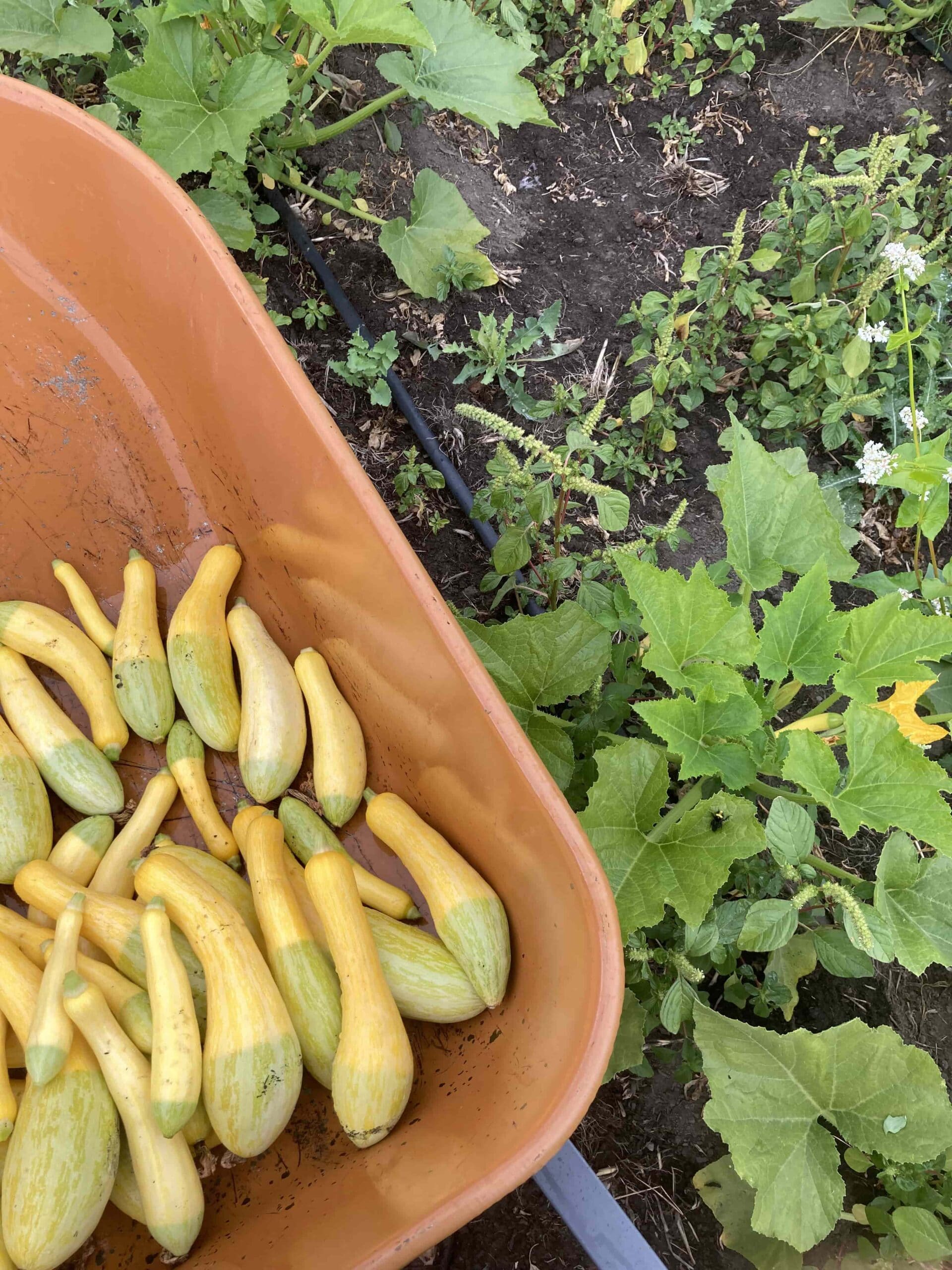

-
- Explore the Farm
- Feel free to walk the farm paths when the gate is open.
| Wednesdays |
9:00 a.m. - 4:00 p.m. |
| Saturdays |
10:00 a.m. - 4:00 p.m. |

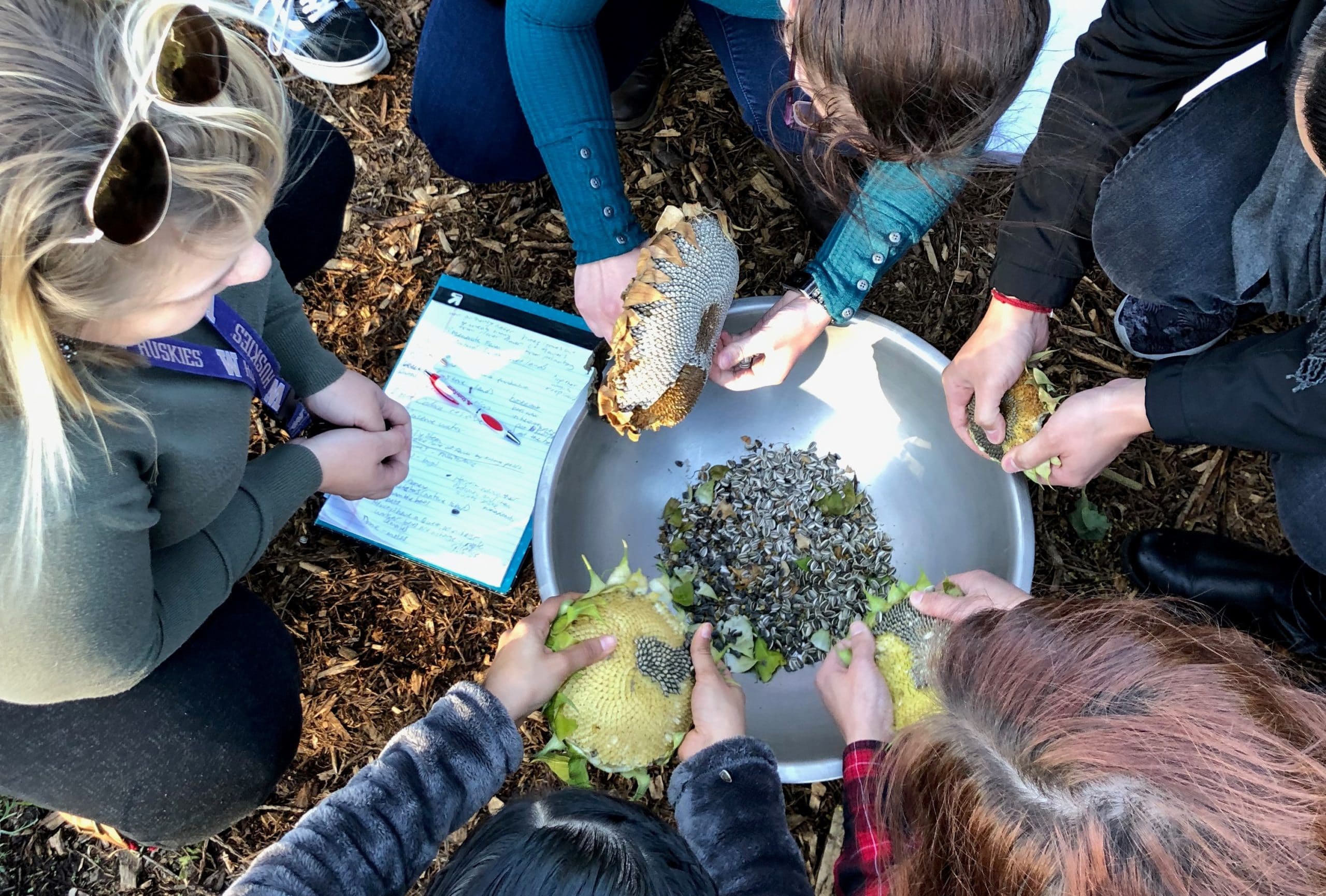
Education on the Farm
Our regenerative farm is a place to learn about the value of agriculture as climate action.
Come walk the farm, learn with hands-on volunteering, propose a research project, join a tour, and explore your next learning adventure.
Where Does the Food Go?
Much of the produce we harvest from the 21 Acres Farm is sold or turned into to-go meals through the Farm Market. There’s no better way to appreciate local food than by trying it for yourself! Produce is also distributed throughout our community. Some is donated to local organizations that provide food to families in need. Local partners help us reduce food waste by gleaning excess from the farm. We also distribute some of the harvest through Farmstand Local Foods, a regional food hub, to nonprofit organizations. In addition, we sell produce to restaurants and other community organizations. Interested in buying wholesale produce? Email our Farm Manager, Ansley Roberts, ansleyr@21acres.org.
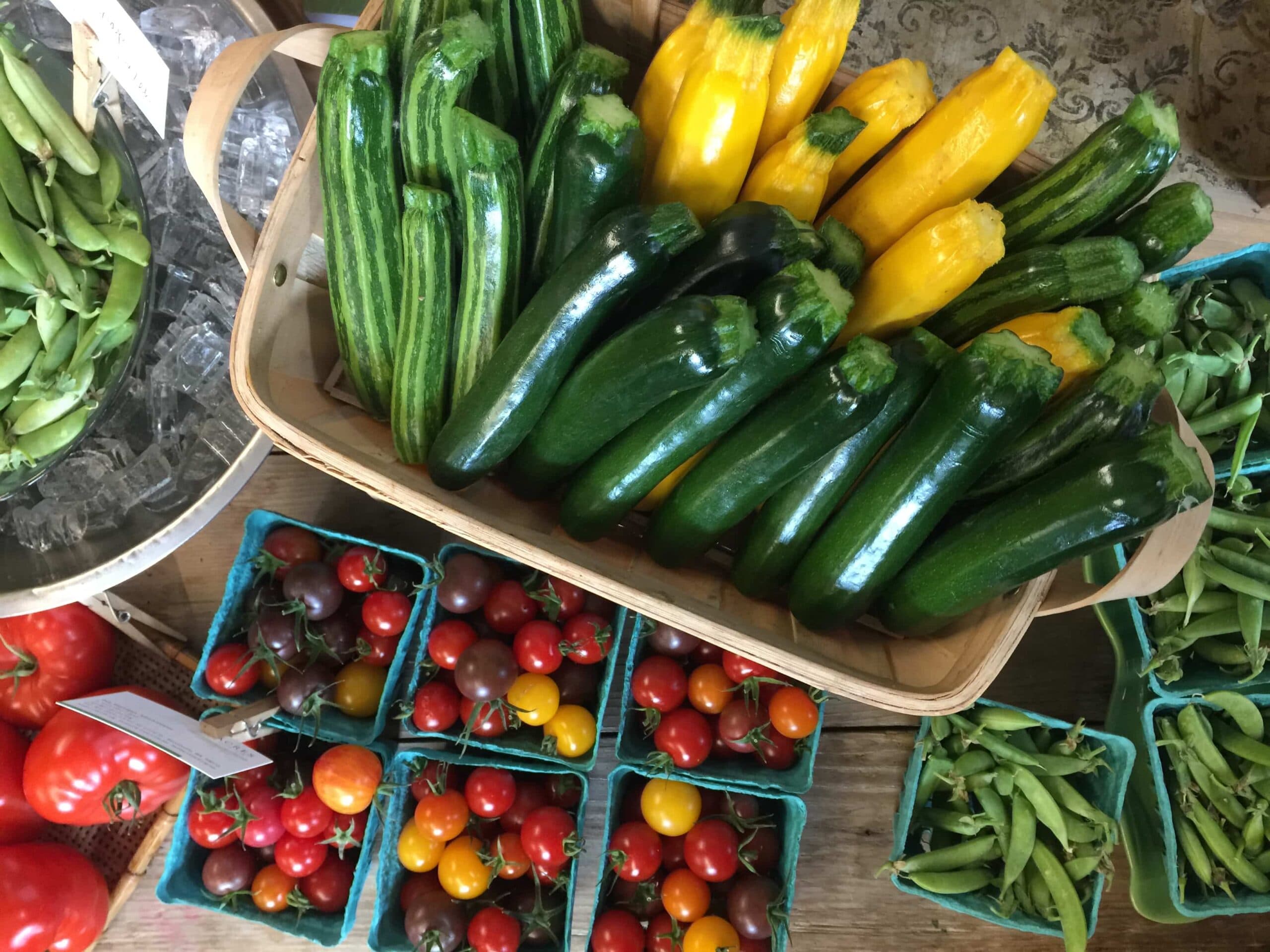
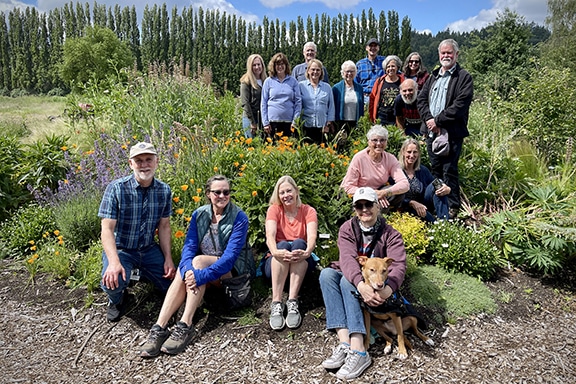
Pollinator Pathway NW
In the center of our farm is a demonstration garden that is the flagship initiative of the all-volunteer led, Pollinator Pathway Northwest group. The initiative started by installing mason bees on local farms to provide pollination services, has grown to include this pollinator garden and a number of other community based initiatives and educational events.
Come visit, tour the garden and learn more about this work.
Farm Shed
The Farm Shed served as an early demonstration of many sustainable construction principles later incorporated in today’s larger Education Center. 21 Acres staff and volunteers built the shed with recycled materials, including salvaged concrete. It is naturally lit through the south-facing windows. A vine trellis creates shade keeping the structure cool. The walls are constructed with cellulose insulation made from recycled denim. The shed has its own living roof, which filters rainwater and serves as wildlife habitat.
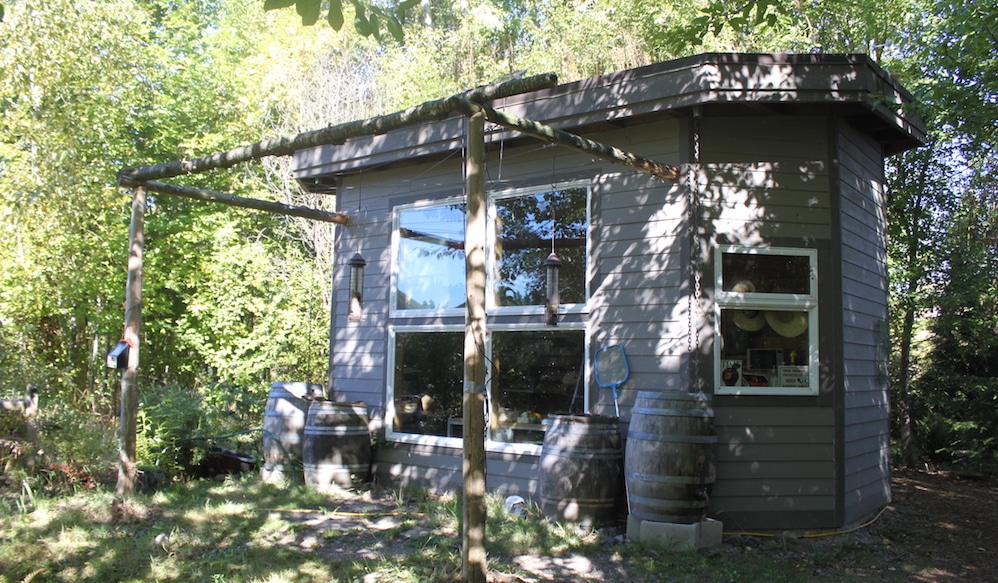

Apiary
Our small apiary is home to our honeybees and beehives. Pollinators play a critically important role in the growing of food.
During a good season, the honeybees also provide over 200 pounds of honey that sells quickly in the 21 Acres Farm Market.
Our hives are successful only because of dedicated volunteers. Get involved by volunteering.
Plant Nursery
The restoration work on the farm is critical to successful crop seasons, biodiversity, erosion control, and other ecosystem services.
We propagate a variety of native, perennial, and edible plants. Walk the farm when the farm gate is open to see the power of native plants for yourself.
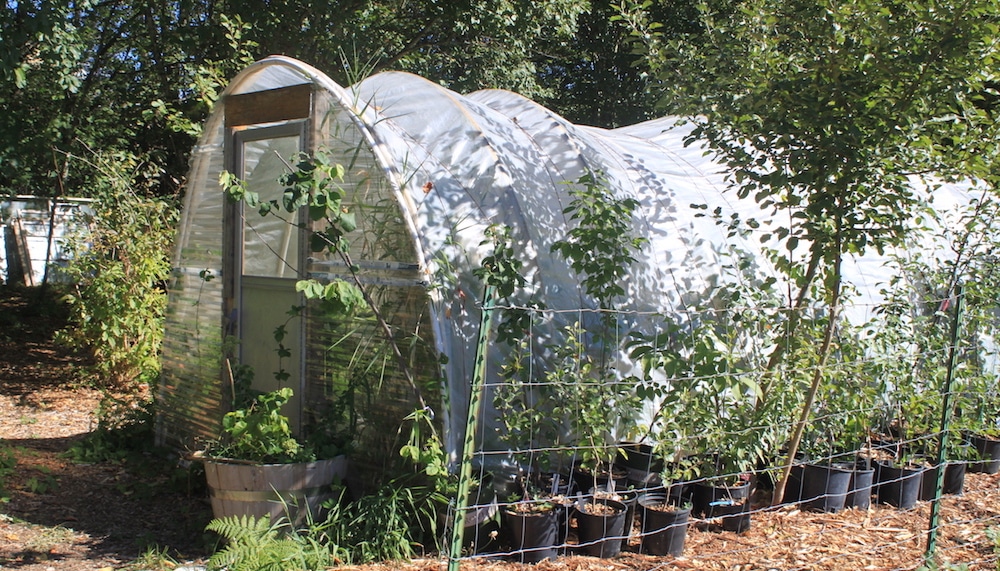
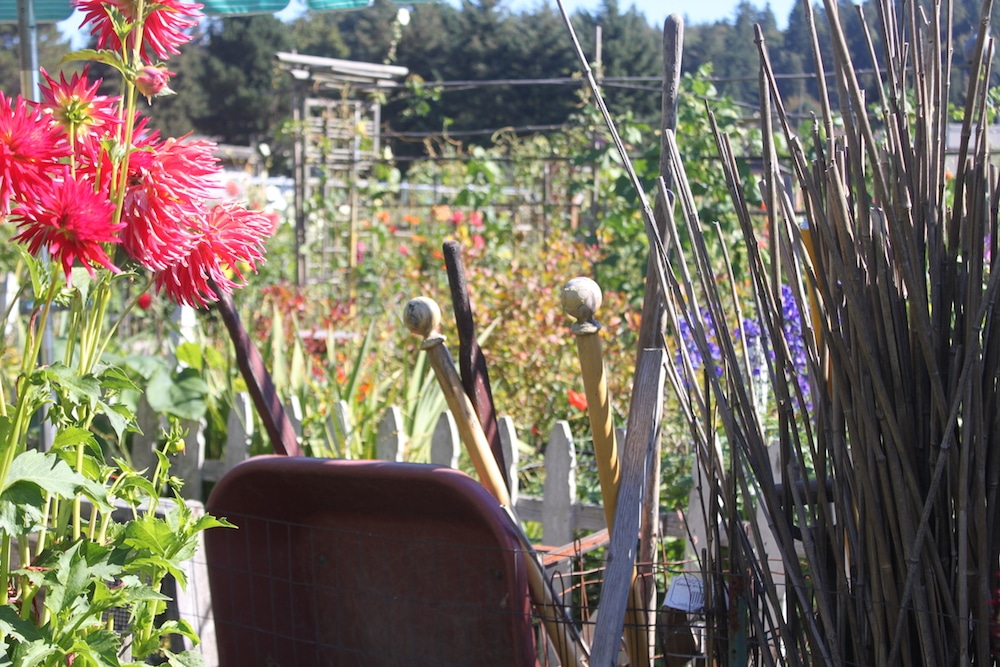
Community Gardens
The two community gardens are partnerships in soil, water and food and have existed since 2005. Gardeners are happy to share knowledge, but please know that unlike some public gardens where harvest is open to all, here, if you did not plant it, please do not pick it.
For more info please contact these groups directly:
Good Earth Community Garden: gecgarden@gmail.com
P-Patch 2.1 Garden: Ppatch21acres@gmail.com
Volunteer-Stewarded Spaces
21 Acres is honored to have a history of support from veterans, Woodinville Rotary, garden clubs, Eagle Scouts, and more. For example, Veterans Conservation Corps helped establish special areas that provide opportunities for reflection, community connections, and continued learning.
Please enjoy these spaces that foster a deep appreciation for agriculture, habitat restoration, horticulture and nature-based connections. If you’re interested in getting involved learn about volunteering.
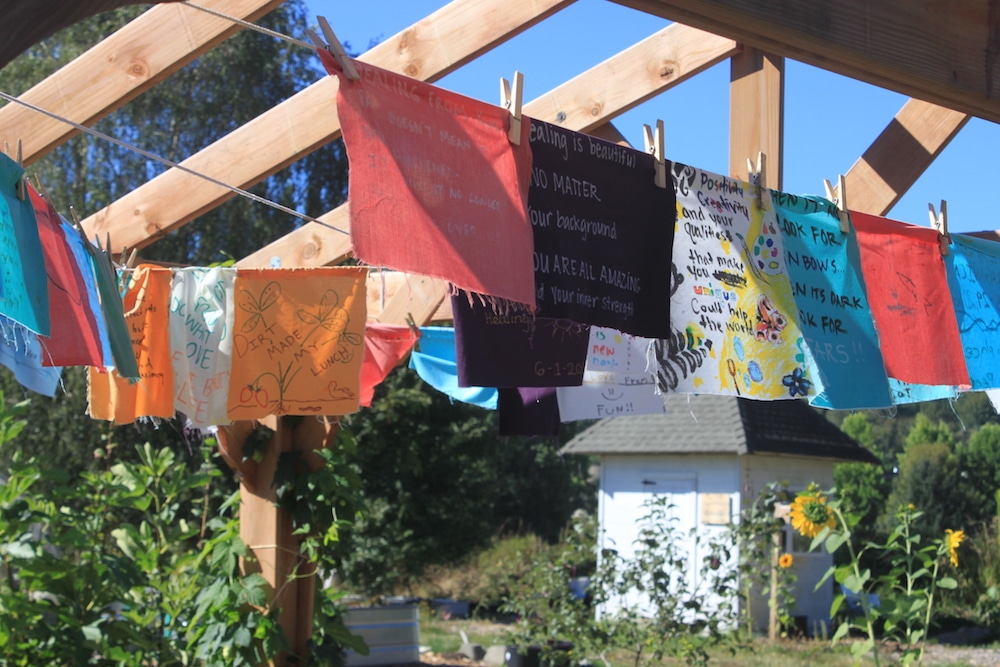
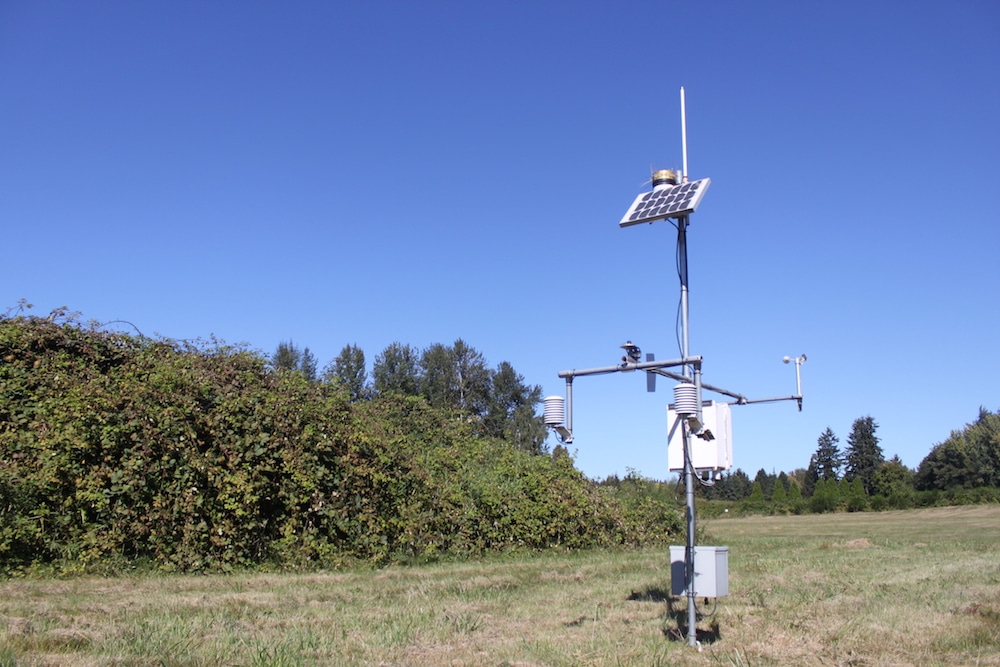
Weather Station
We host one of the 178 automated AgWeatherNet weather stations that help feed information into systems that farmers rely on to make decisions about day-to-day operations. These stations, monitored by Washington State University, collect local data, including air temperature, relative humidity, dew point temperature, rainfall, wind speed, solar radiation, and more.
Our station (#60), installed in 2008, has collected a lot of information over the years. You can see the current weather at 21 Acres right now, or explore the data collected by our station and other stations around the state on the AgWeatherNet site.



















